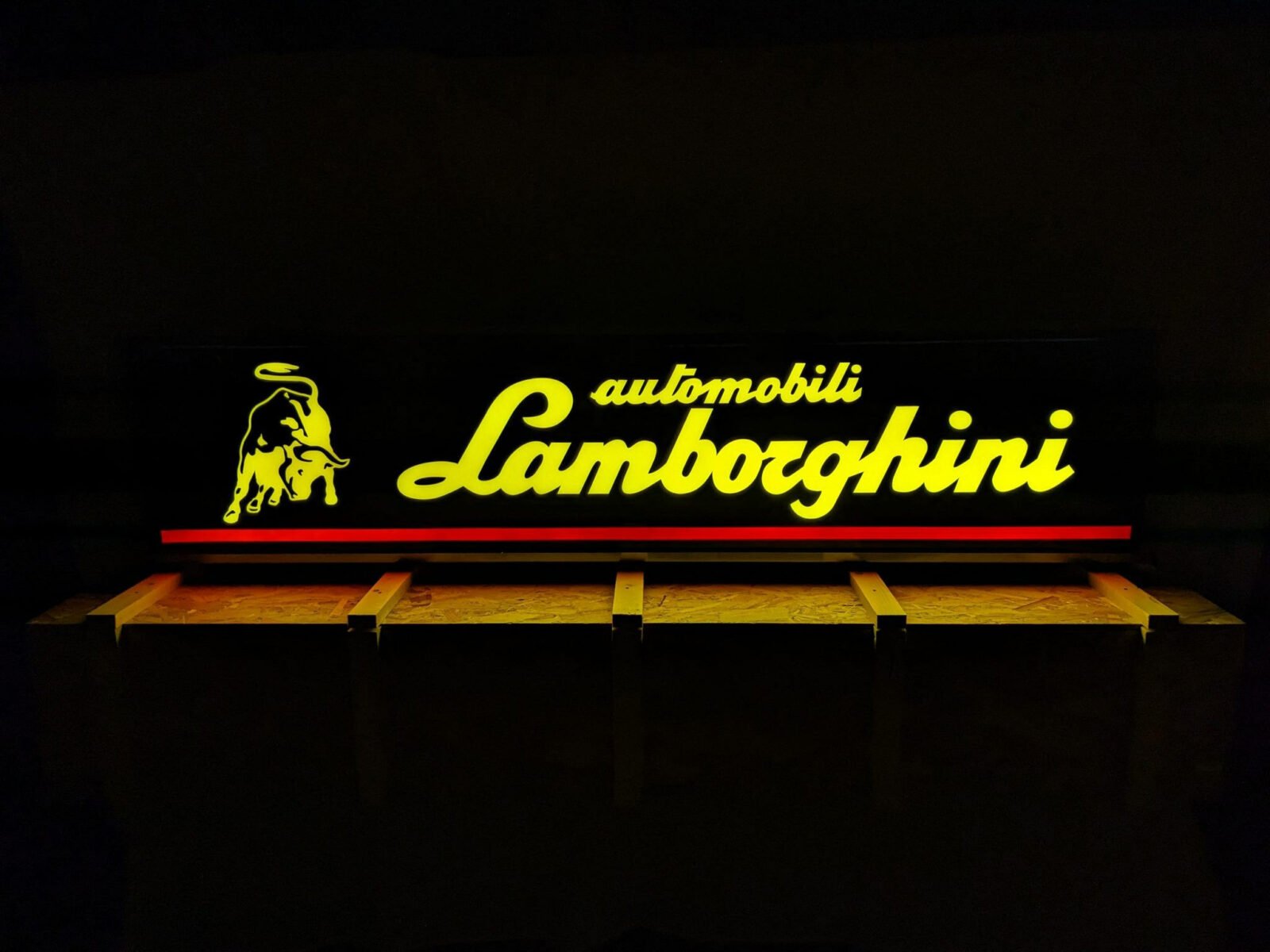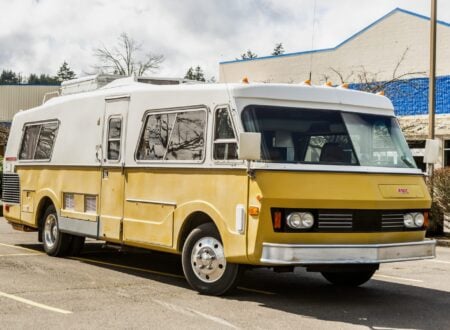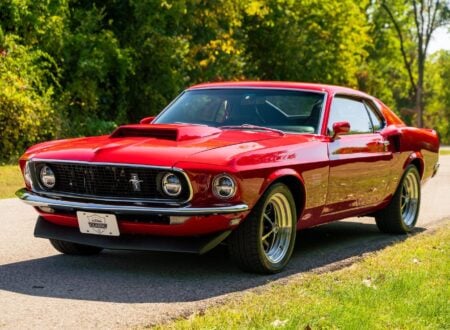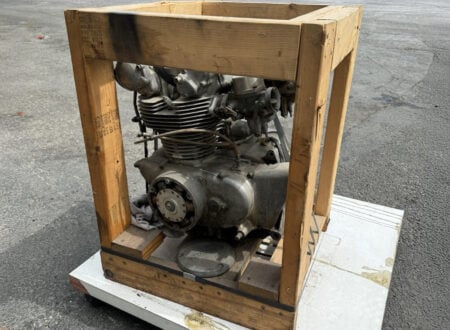This illuminated Lamborghini sign was bought by the current owner in Italy a handful of years ago, and it measures in at a hefty 6’4″ wide, 1’6″ high, and 7″ deep.
The sign was made by Serenari Pubblicità in Italy and it comes in a protective wooden shipping crate, it’s designed to work on 220 volt electrics but it comes with a 110 volt power converter with a US style wall plug so it can be safely used in North America.
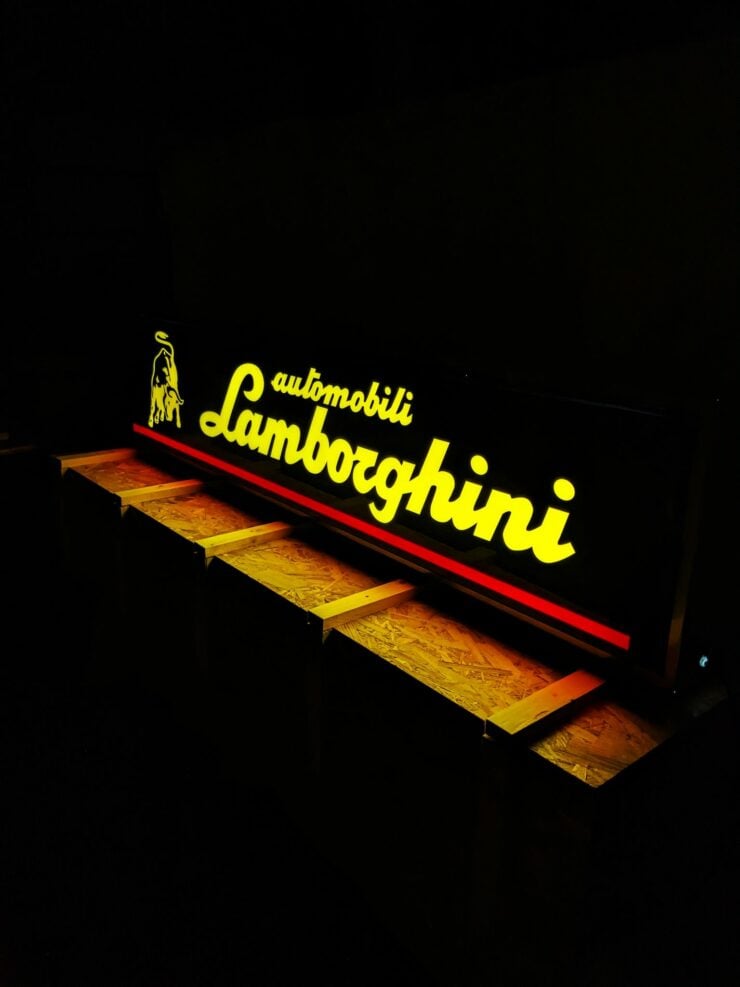

The story of Lamborghini begins with its founder, Ferruccio Lamborghini. Born in 1916 in a small Italian village to a farming family of viticulturists, Ferruccio demonstrated a keen interest in mechanics from a young age.
After serving as a mechanic in the Italian Royal Air Force during World War II, he returned home to start a business repairing tractors and converting military vehicles for agricultural use. His success in this venture allowed him to found Lamborghini Trattori, a successful tractor manufacturing company, in 1948.
Ferruccio Lamborghini’s foray into the world of sports cars was ignited by a passion for automobiles – he had been a fierce amateur racing driver in his earlier years. Owning a fleet of luxury cars, including several Ferraris, he was unsatisfied with the vehicles’ shortcomings, particularly their noisy engines and inferior clutches. When he approached Enzo Ferrari with his concerns, he was met with disdain, leading Lamborghini to set out to build a superior sports car.
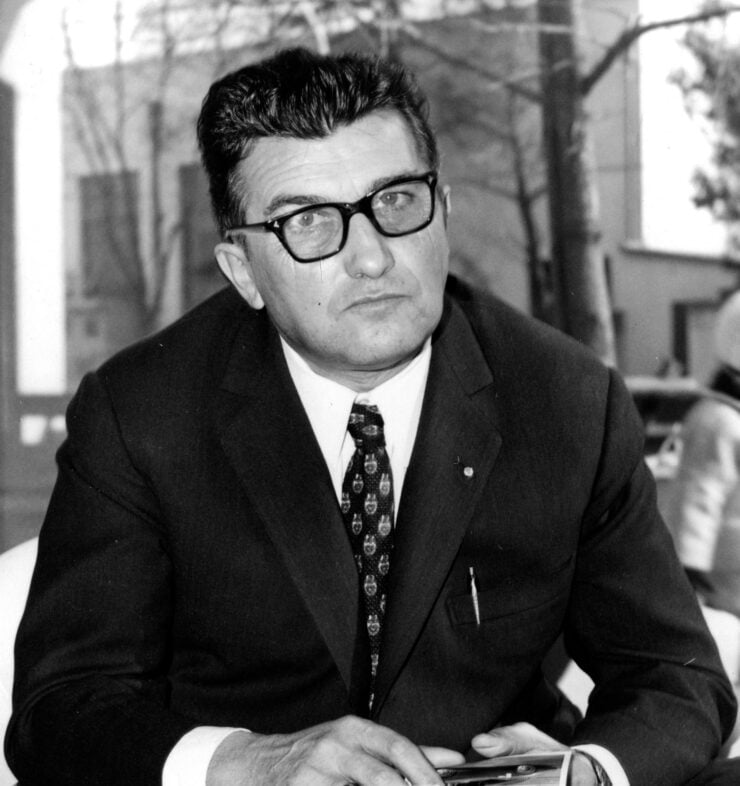

In 1963, Ferruccio Lamborghini founded Automobili Lamborghini S.p.A., with a mission to produce a refined grand touring car that would outperform and surpass its competitors.
The Lamborghini 350 GT, unveiled in 1964, marked the beginning of the marque’s foray into the world of luxury sports cars. Designed by Franco Scaglione, this elegant grand tourer boasted a top speed of 158 mph, thanks to its 3.5 liter V12 engine.
In 1966, Lamborghini unveiled the Miura, a car that would become a symbol of the brand’s innovation and design prowess. Named after a breed of Spanish fighting bulls, the Miura is considered by many to be the first supercar, and in a stinging rebuke to Ferrari it was faster than any car they had in production.
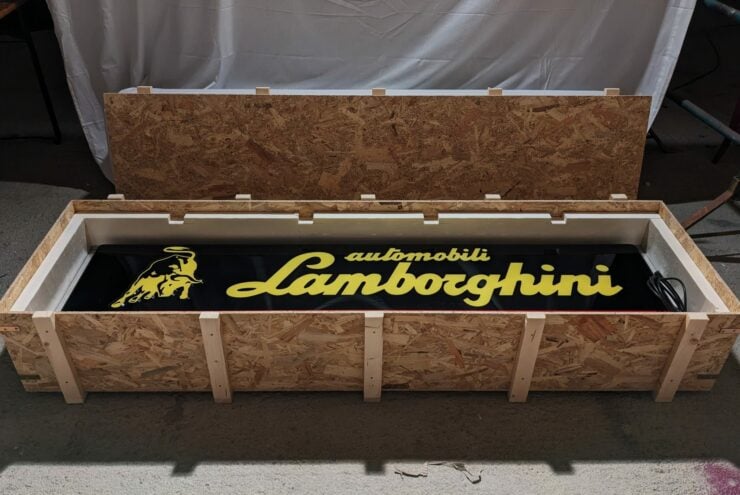

With its considerable dimensions of 76″ wide, 18″ high, and 7″ deep (93 cm wide, 46 cm high, and 18 cm deep) and a weight of 40 lbs (18.14 kgs) this sign would be ideally suited to being mounted on a wall, preferably in a garage of course, but it could also make a nice addition to the living room if you have an understanding spouse.
It has a stainless steel metal structure with a plastic front, and it uses internal fluorescent illumination to light up when switched on. As noted above it comes with a wooden shipping crate, and it’s being offered for sale out of British Columbia in Canada on Bring a Trailer.
If you’d like to read more about this sign or register to bid you can visit the listing here.
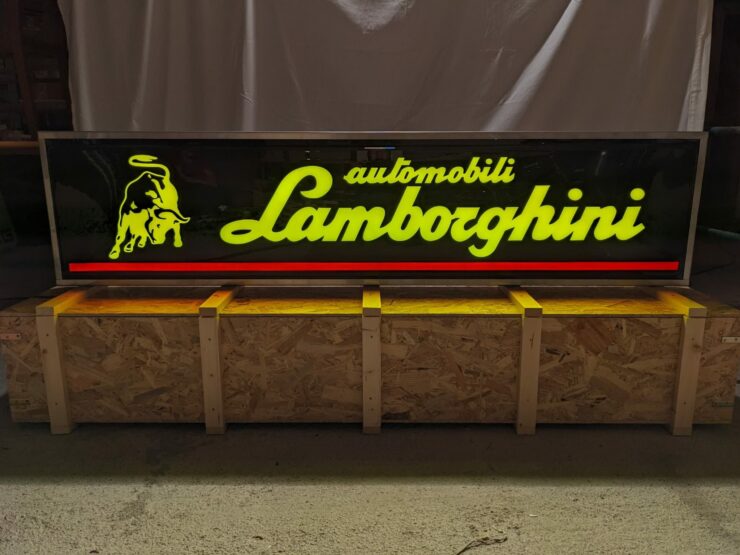
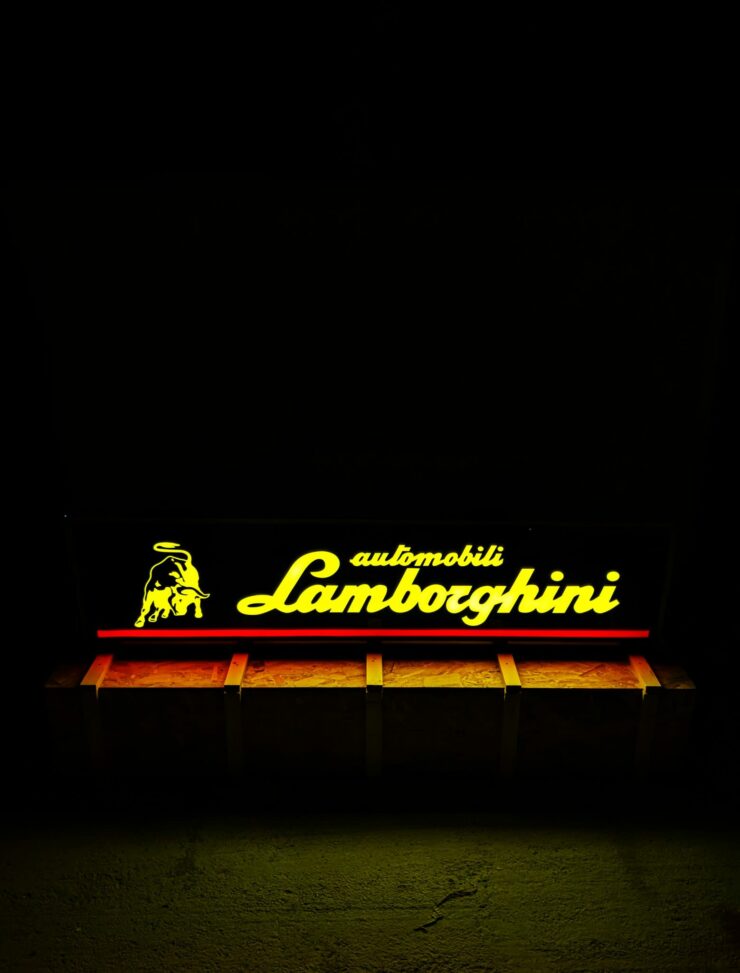
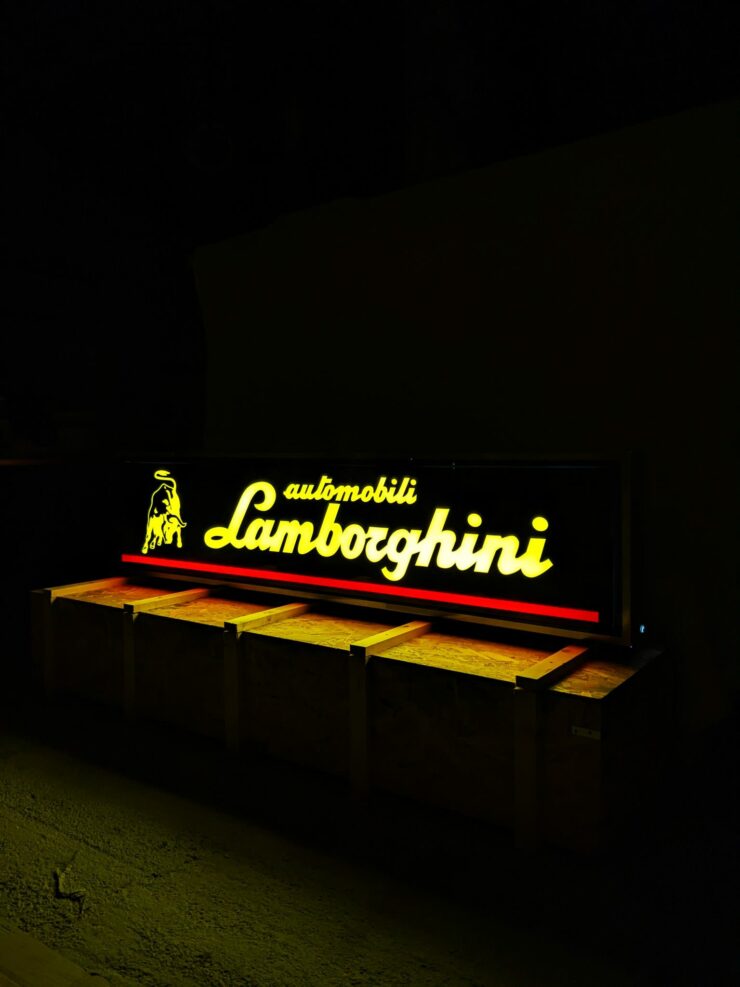
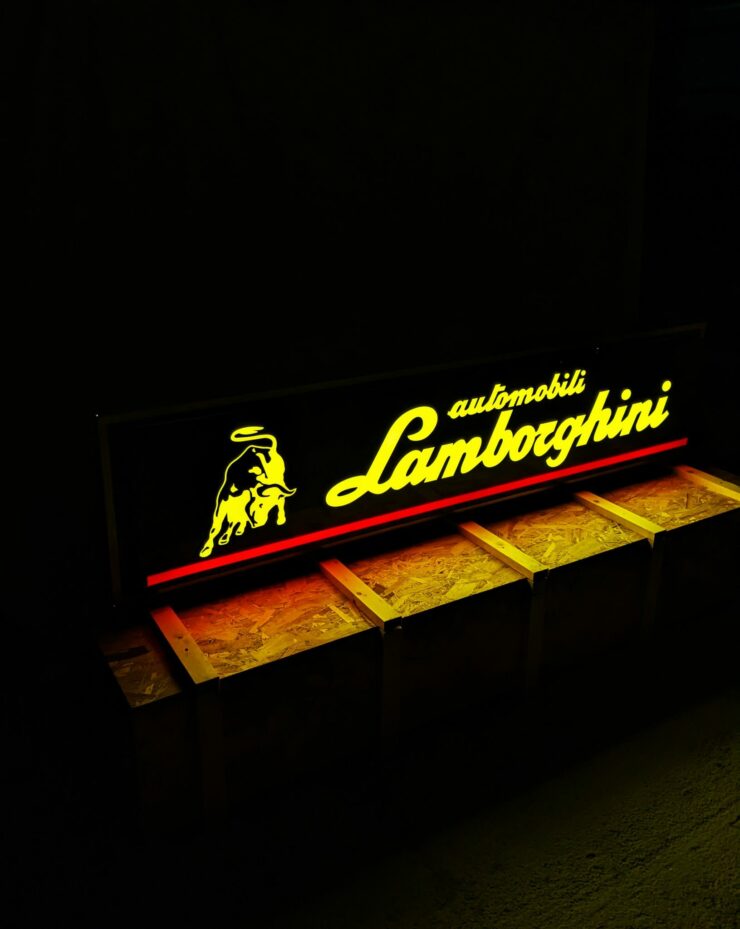
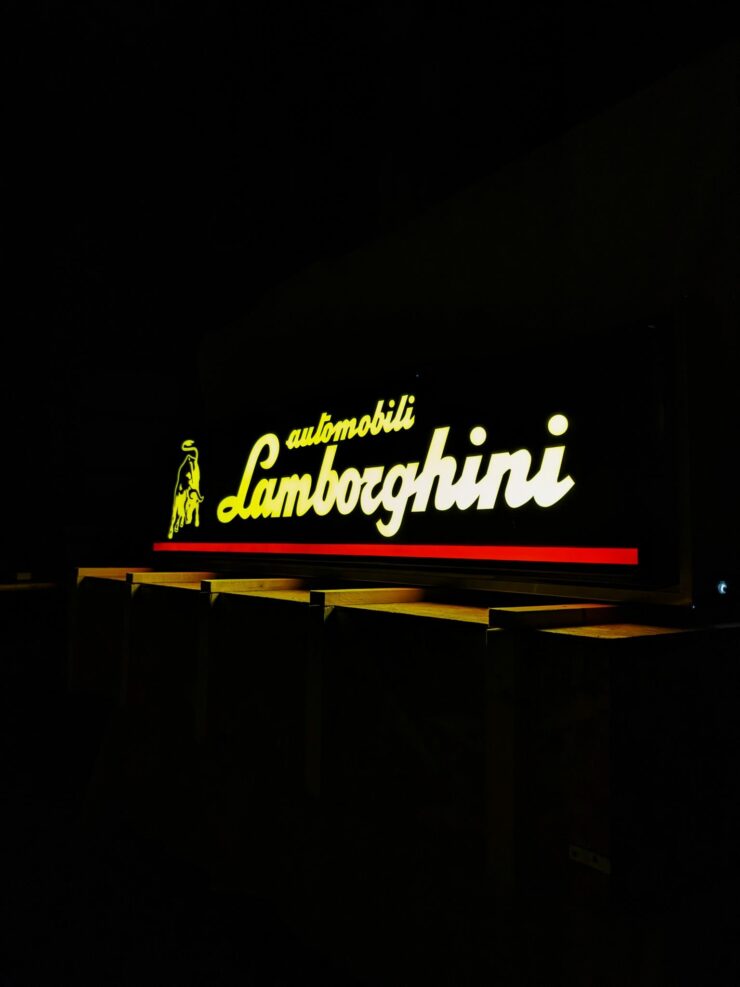
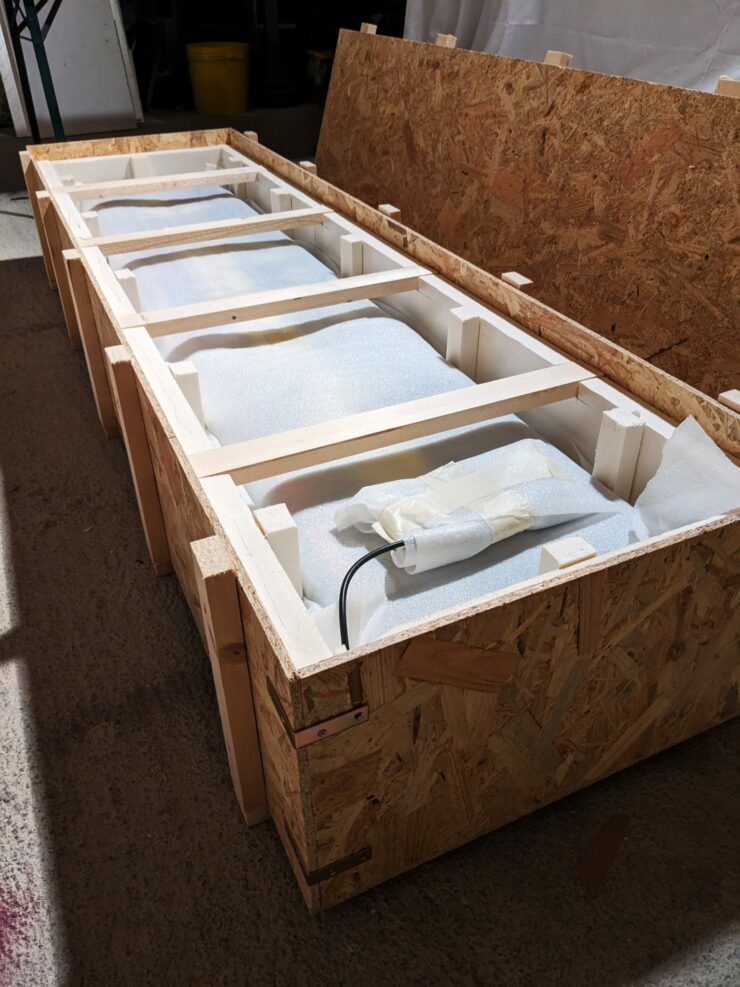
Images courtesy of Bring a Trailer

